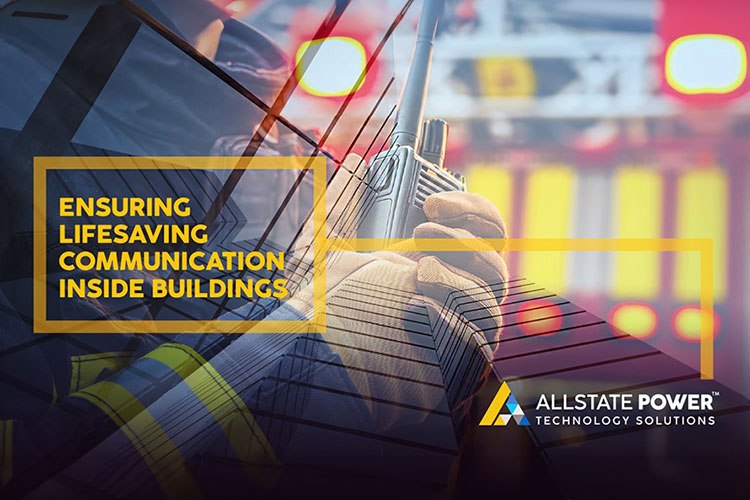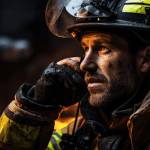In an emergency, every second matters. When fire breaks out or a critical situation unfolds inside a building, clear communication isn’t just helpful—it’s essential. Yet many large structures like high-rises, hospitals, warehouses, and commercial facilities face a hidden risk: poor emergency radio signal penetration.
Without adequate in-building radio coverage, first responders struggle to coordinate their efforts, potentially leading to delays that can cost lives and property.
The High Stakes of Poor In-Building Radio Signals
When emergency communication systems fail, the consequences can be severe:
- Delayed Response Times – Without reliable radio signals, firefighters, EMTs, and law enforcement may struggle to coordinate, slowing down life-saving actions.
- Increased Risk to Life and Property – Lack of communication hinders evacuation efforts and prolongs incident response, endangering everyone inside.
- Non-Compliance Penalties – Florida’s fire codes require buildings to meet specific radio signal standards. Failure to comply can result in fines, project delays, or even denial of occupancy permits.
- Reduced Safety Assurance – Building owners and managers have a duty to provide safe spaces. Poor signal coverage reflects a gap in meeting modern safety expectations.
Florida’s Push for Stronger Emergency Communication Standards
Florida has joined a growing number of states enforcing stricter compliance with emergency communication requirements. Under NFPA 1221, IFC Section 510, and other codes, buildings must provide reliable in-building radio coverage for first responders. Local jurisdictions across Florida are mandating BDA (Bi-Directional Amplifier) testing and installation where signal strength falls short.
Why the emphasis on enforcement?
- Life Safety First – Ensuring seamless radio communication saves lives during emergencies.
- Code Compliance – Updated fire codes are not optional; they’re mandatory for occupancy approval.
- Lessons from Past Incidents – Post-incident reviews repeatedly cite communication failures as critical issues.
- Occupancy Approvals – Many buildings cannot obtain a Certificate of Occupancy without passing BDA testing.
How Allstate Power Supports Your Safety and Compliance
At Allstate Power, we specialize in helping Florida building owners, developers, and facility managers meet public safety radio requirements with confidence. Our comprehensive services ensure your building is code-compliant, safe, and ready for emergencies.
Here’s how we can help:
1️⃣ Signal Testing and Evaluation – Our experts use advanced equipment to assess your building’s radio coverage, identifying areas that fall below required standards.
2️⃣ Turnkey BDA System Design & Installation – If your building fails testing, we handle the design, permitting, and installation of a customized BDA system—delivering seamless coverage and full compliance.
3️⃣ AHJ Coordination – We work closely with local Authorities Having Jurisdiction (AHJs) in Florida to ensure your system is approved and up to code, avoiding costly delays.
4️⃣ Annual Inspections & Maintenance – BDA systems require ongoing care. We provide annual testing, certification, and maintenance to ensure your system performs reliably year after year.
Don’t Leave Safety to Chance—Partner with Allstate Power
Your building’s emergency communication system is too important to overlook. Whether you’re building new or retrofitting an existing facility, Allstate Power is your trusted partner for BDA system compliance and public safety.
Contact us today at 855-606-9468 to schedule your building’s emergency signal assessment.
Learn more about our services at https://qtm.izo.temporary.site/public-safety-das/.
Ensure safety. Ensure compliance. Choose Allstate Power.









